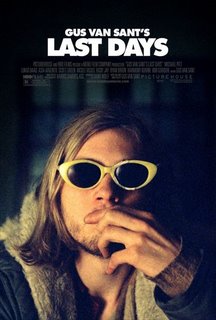Van Sant plumbs the dire depths of the psyche once again, as knowingly as he has done in Elephant and in My Own Private Idaho. The World War II of Sartre and Simone de Beauvoir held no more nausea than the Northwest U.S. or the high school halls of Van Sant.
William Burroughs and Allen Ginsberg throb in the veins of the young, despairing souls of these films. Eros and Thanatos are indistinguishable. Drugs and alcohol are not the cause, but rather a part of the sacraments, the eucharist host, providing profane rituals that momentarily dispel dread. The emptiness and horror come not from the lost psyches of these characters, but from the ordinary, commonplace worlds they inhabit: the shopping mall, the American Empire of oil, corporate capitalism, the mindless schools of social wasteland, the suburbs, our happy television world-- valueless, amoral, Bush country.

It is revealing contrasting Van Sant's beings with those of Pedro Almodovar: a contrast that, in part, reflects the difference between hopelessness in America and exuberance in Spain. Almodovar's individuals are fully alive, passionate, and no less mad than those of Van Sant. Their situations are equally desperate and existential. Yet they are able to find joy in life, to create meaning rather than destroy it. Creative defiance may not rid the world of its horrors; but the romanticism and brief ecstasy in Almodovar surpass the futile deaths depicted by Van Sant, however sublime and frightfully gorgeous they may be.

No comments:
Post a Comment